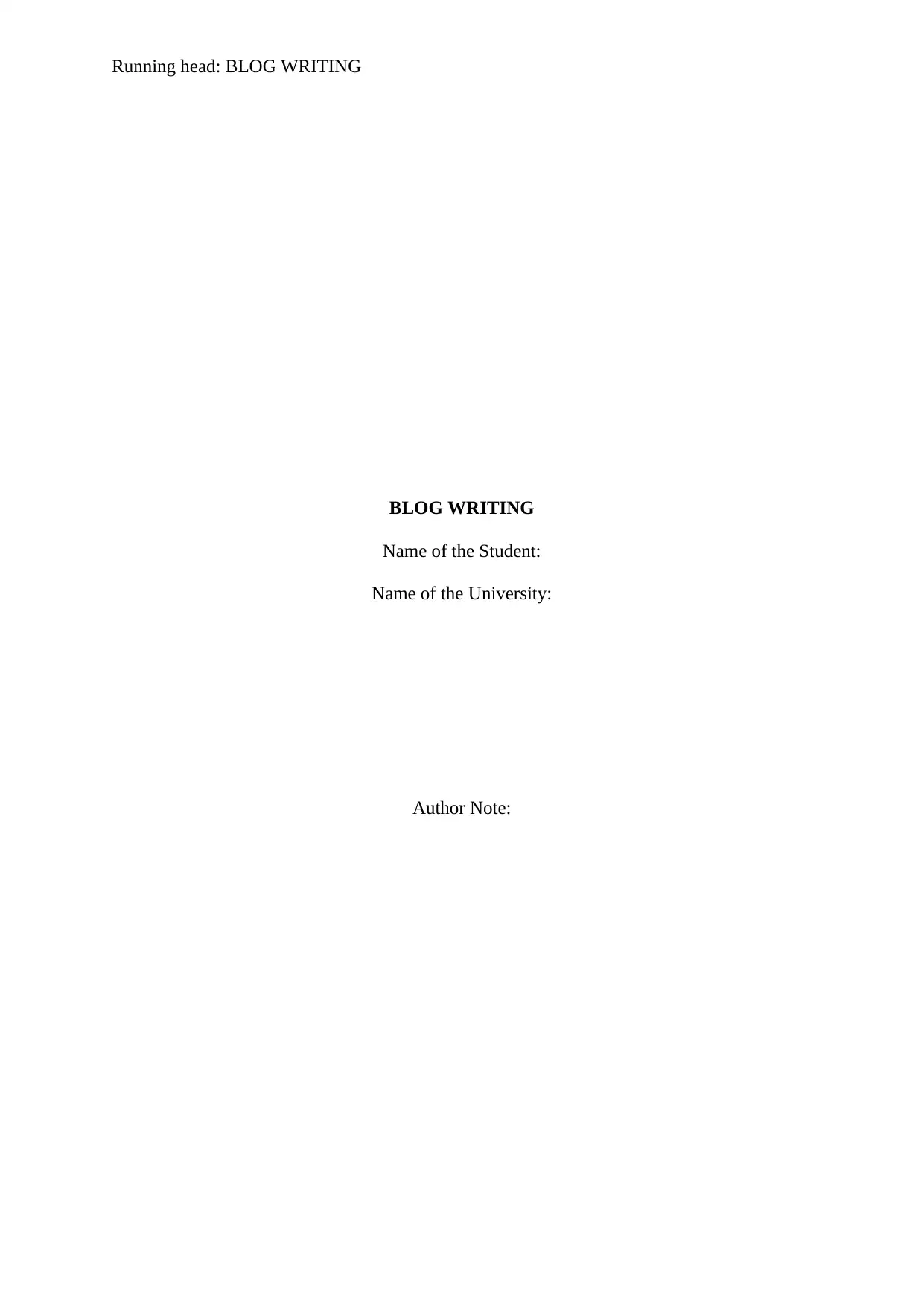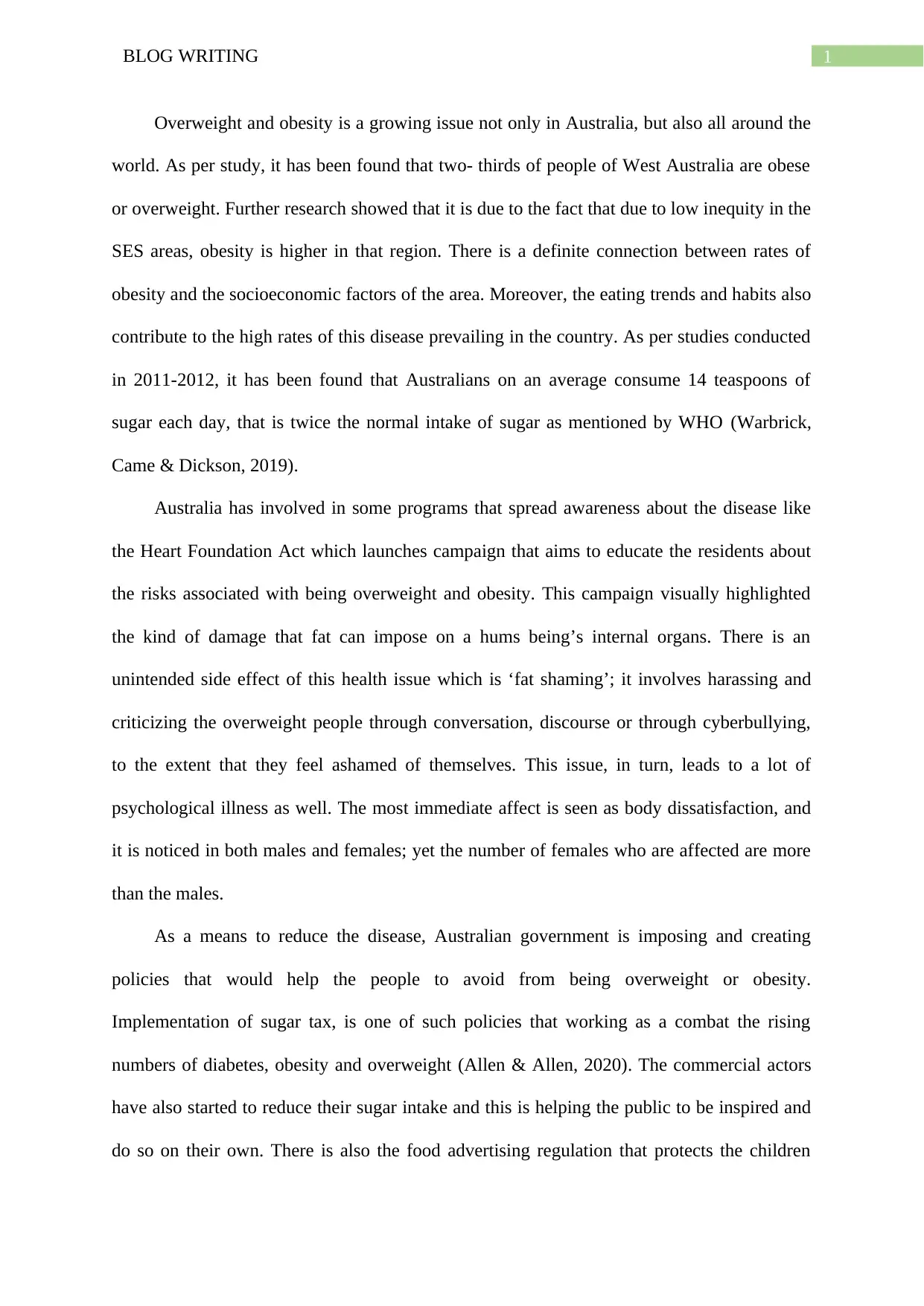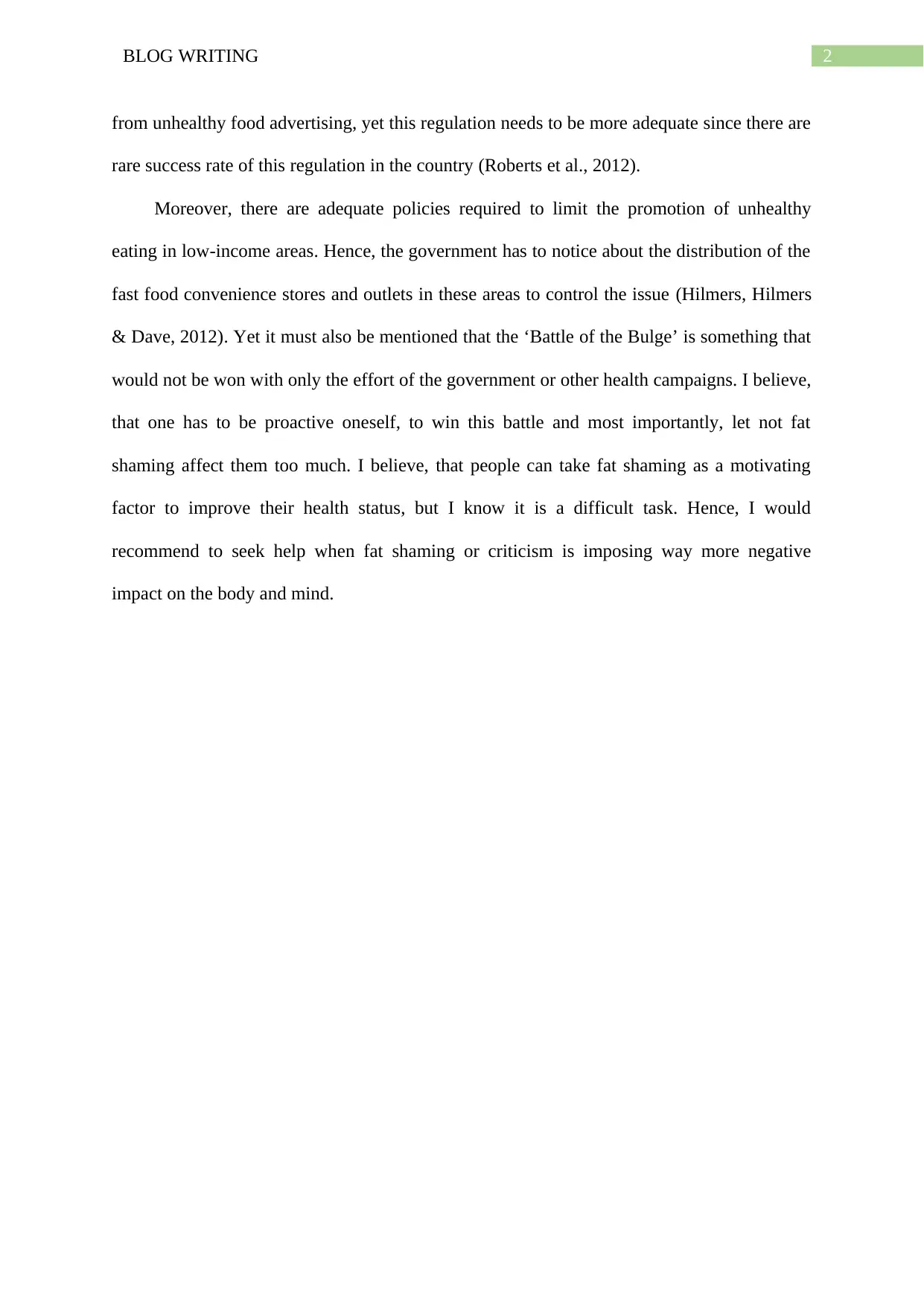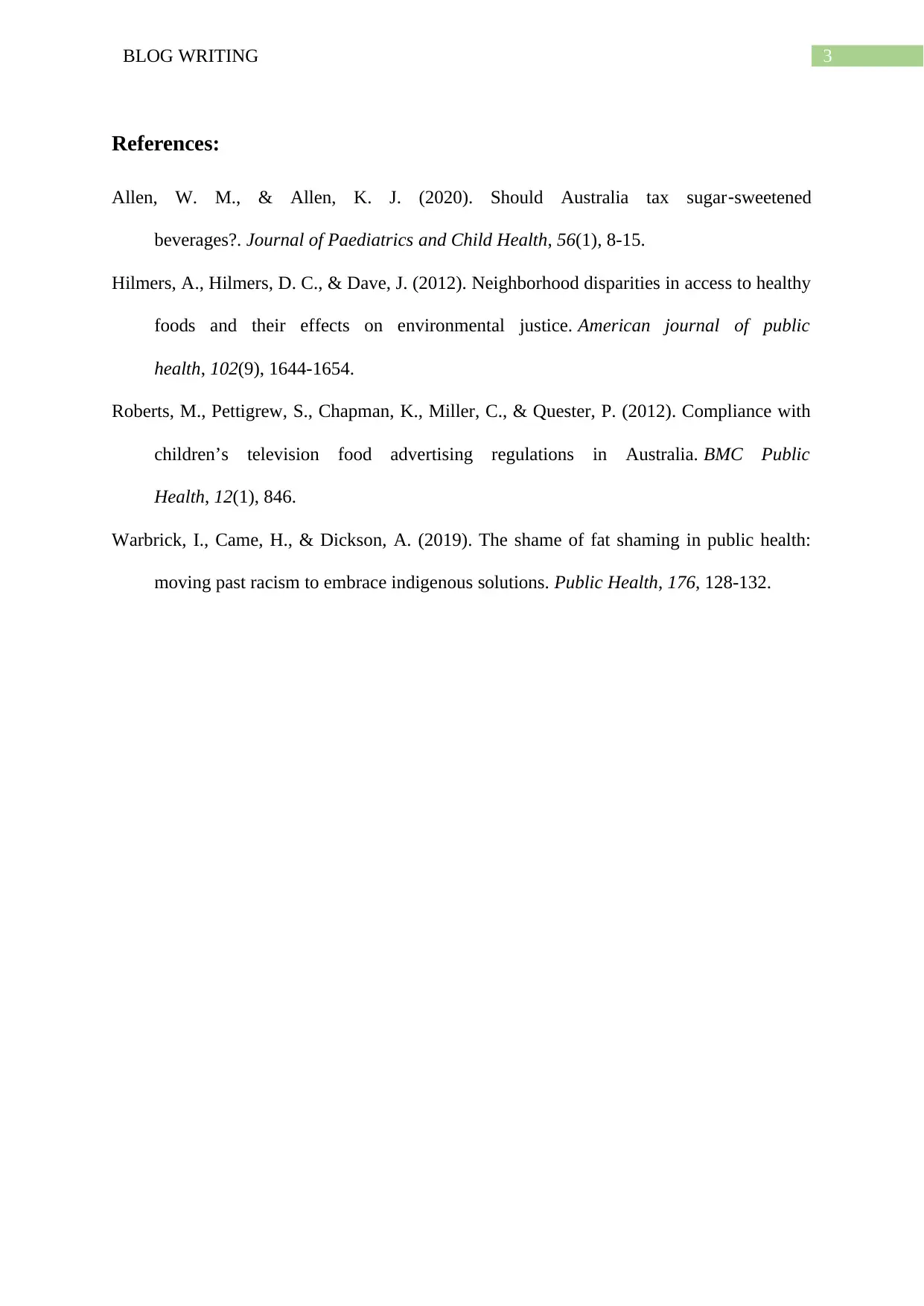Blog Writing: Australian Obesity, Health Campaigns, and Policies
VerifiedAdded on 2022/09/12
|4
|796
|24
Creative Assignment
AI Summary
This blog post delves into the growing issue of obesity in Australia, examining various contributing factors and potential solutions from a public health perspective. It highlights the inequity in low socioeconomic status (SES) areas, where obesity rates are higher due to limited access to resources and education. The post also analyzes the role of eating trends, such as high fast-food consumption and excessive sugar intake, in exacerbating the problem. It explores the impact of public health campaigns, including unintended consequences like fat shaming, and evaluates the effectiveness of policies such as sugar taxes and regulations on unhealthy food advertising. The author argues for a proactive approach to address obesity, emphasizing the need for both government initiatives and individual responsibility, while also acknowledging the psychological impact of fat shaming and recommending seeking support when needed. The blog references studies and reports to support its arguments, providing a comprehensive overview of the challenges and potential strategies for tackling the obesity crisis in Australia.
1 out of 4








![[object Object]](/_next/static/media/star-bottom.7253800d.svg)